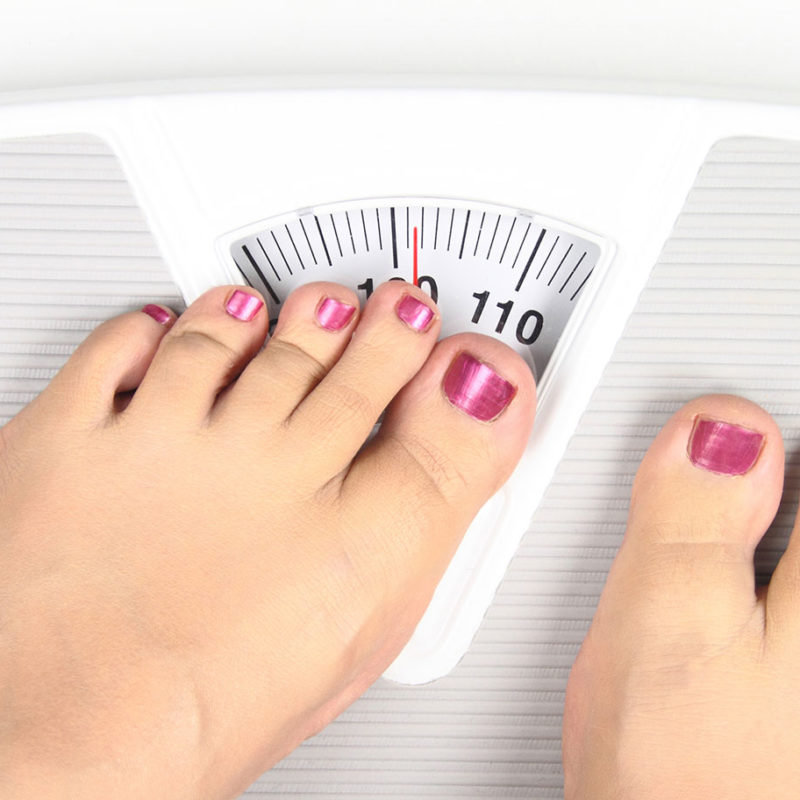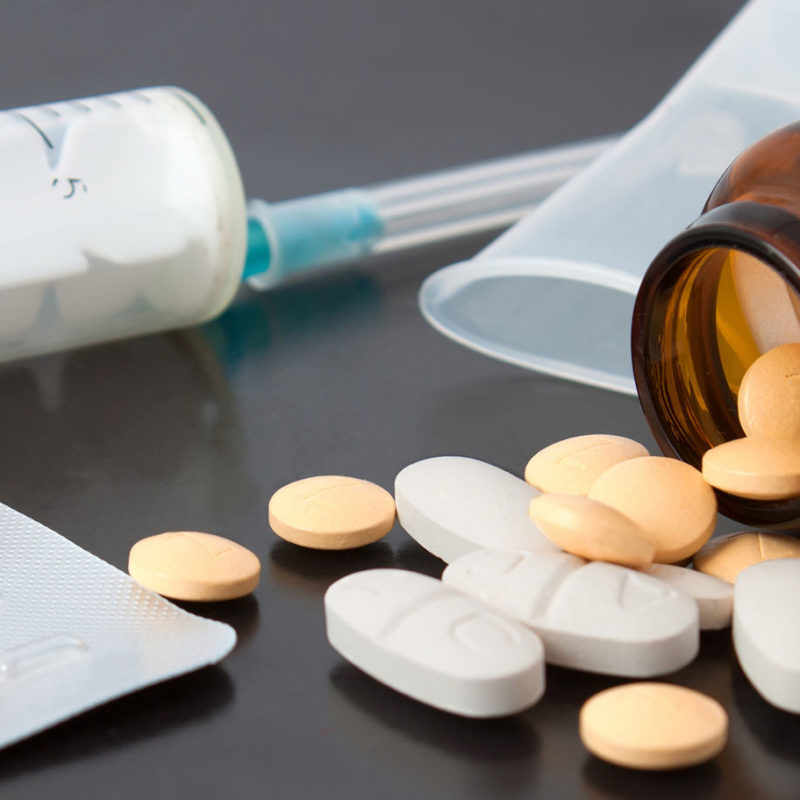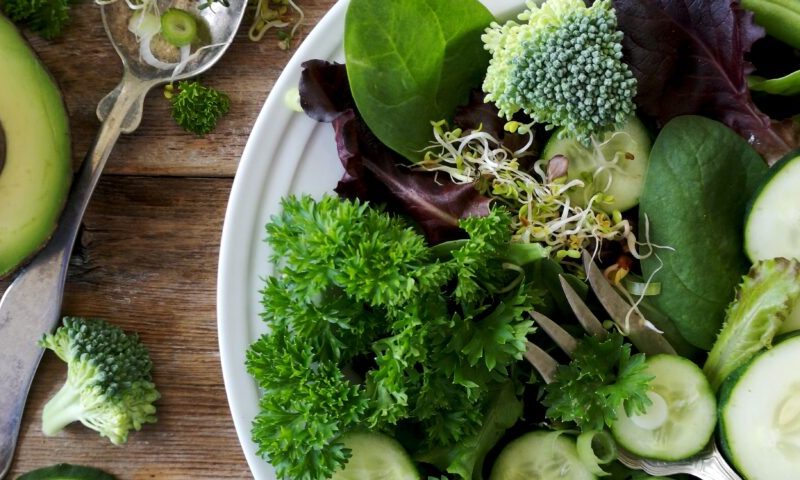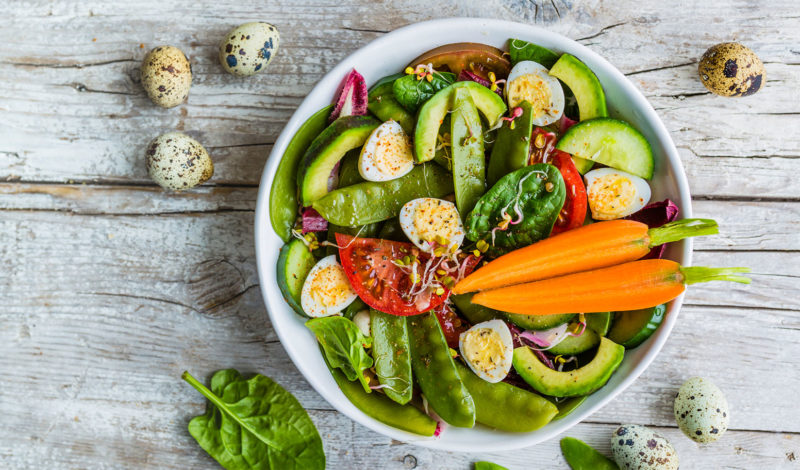With a healthy and varied diet vegetarians usually have no nutrient deficiencies to fear. Vegetarians should pay attention to nutrients [...]
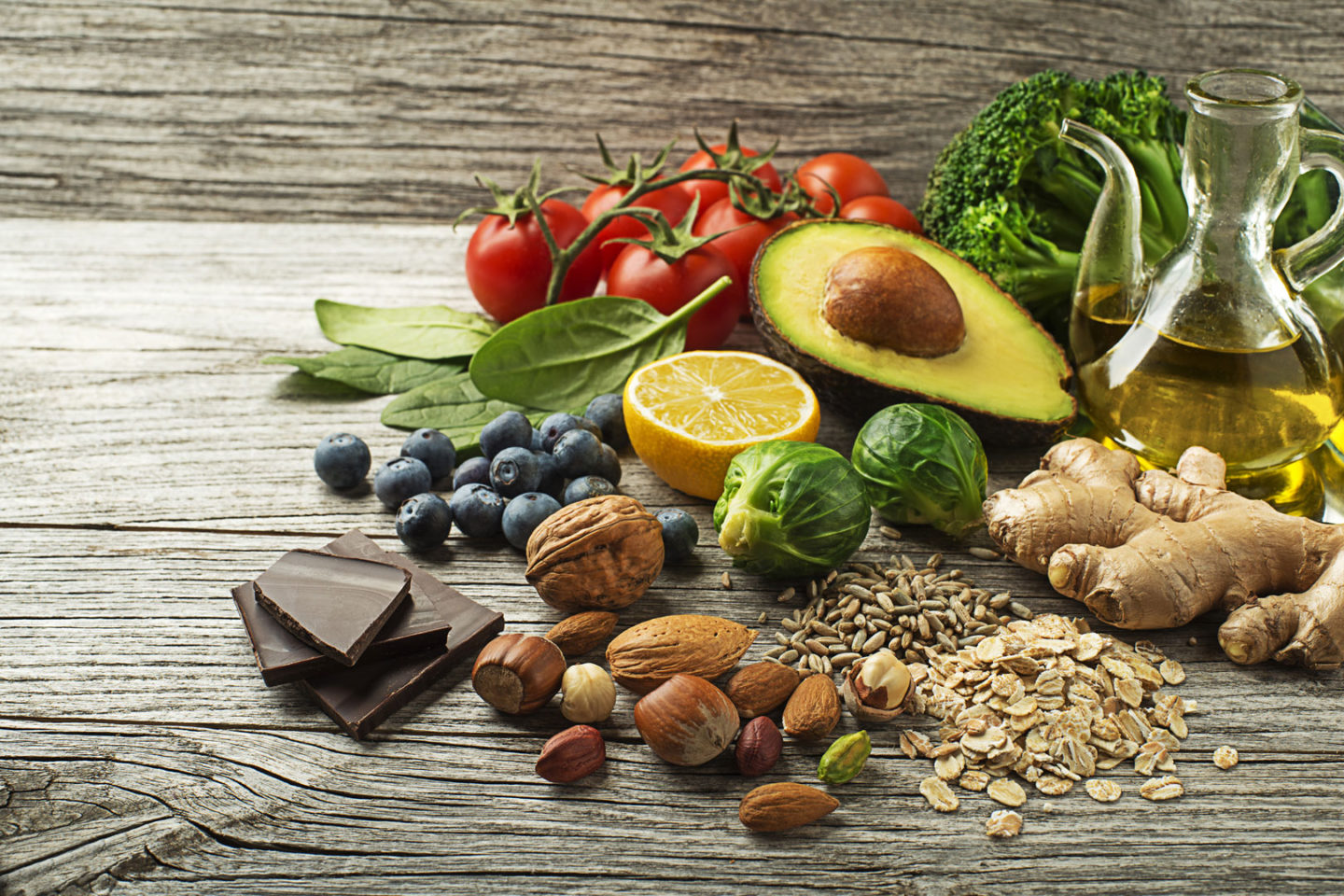
Vegetarian: deficiency due to meatless diet?
A balanced and varied ovo-lacto-vegetarian diet is, according to the German Nutrition Society (DGE for its German acronym), a safe option and even recommendable. It is important to avoid a vegetarian deficiency.
More and more Germans are opting for a meat-free diet or are consciously reducing their meat consumption. According to ProVeg (formerly VEBU), around 8 million Germans had a vegetarian diet in 2016. That means: every tenth German is a vegetarian. Being a vegetarian has advantages and disadvantages. Because with all health advantages, which bring the vegetarianism with itself, it can also lead to a malnutrition.
In order to prevent a deficiency, vegetarians should intensively deal with the topic of nutrition and ensure that they consume sufficient nutrients and vital substances daily. The easiest way to do this is with an ovo-lacto-vegetarian diet. With this classical form you continue to eat eggs and dairy products. It becomes more difficult with a purely plant-based, vegan diet. This article shows you how you as a vegetarian can avoid deficiency symptoms.
Health benefits of a balanced vegetarian diet
A balanced and varied ovo-lacto-vegetarian diet is according to the German Society for Nutrition (DGE) considerate safe and even recommendable. Those who eat healthily without meat do not have to fear malnutrition as vegetarians. On the contrary: If you remove meat and meat products from your diet, you usually enjoy many health benefits:
From a therapeutic point of view, a change in diet to vegetarian food can also have a positive effect on complaints such as irritable bowel syndrome. An intestinal analysis, for example, can provide information about which foods are particularly good for your body and show whether a vegetarian diet is also recommended for you. You can do this easily with INTEST.pro from BIOMES tun. The results of the intestinal test tell you, among other things, whether the bacteria in your intestinal flora are in balance and provide information about your tendency to intolerance. Based on your test results, you will receive concrete recommendations for action and an individual nutrition plan.
Vegetarians and possible deficiency symptoms
Regardless of the individual diet, the adequate intake of nutrients and vital substances is essential for a healthy vegetarian diet. Whether meat eater or vegetarian – a malnutrition can have serious health consequences.
| Critical nutrients and vital substances | Function | Possible symptoms of a deficiency |
|---|---|---|
| Protein | Building substance of organs, essential for numerous bodily functions | Fatty liver, hair loss, muscle weakness |
| Iron | Oxygen transport, immune defence | Anemia (anaemia), susceptibility to infection, rapid fatigue, brittle hair and nails, torn corners of the mouth |
| Vitamin B12 | Blood formation, cell division, regeneration of nerve cells | Anemia (anaemia), nerve damage |
| Calcium | Essential for healthy bone structure | Osteoporosis (bone atrophy) |
| Iodine | Supports metabolism | Enlarged thyroid gland, over- or underactive thyroid gland |
| Zinc | Supports a variety of metabolic processes, insulin storage, immune defense | Loss of appetite, impaired growth development, susceptibility to infections, impaired wound healing |
| Omega-3 fatty acids | Improve blood flow, contribute to normal cholesterol levels, prevent cardiovascular disease | Difficulty concentrating, impaired vision, cardiovascular diseases, dry skin, poorer wound healing |
This is how you avoid a lack of vitamins and other nutrients as a vegetarian
If you consume sufficient amounts of nutrients and vital substances every day, as a vegetarian you usually don’t have to worry about a deficiency. In the following list you will find out how high your daily need for some essential nutrients and vital substances is and where you get them from as a vegetarian. All information is based on the daily requirements of an adult.
- Protein (50 bis 60 g): To cover this, it is recommended to eat eggs or dairy products every day, as well as nuts, pulses and cereals.
- Iron (10 bis 15 mg): For adequate iron intake, it is advisable to combine iron-rich foods such as legumes, whole grain products and nuts with vitamin C-rich foods. This way your body absorbs the iron better and can utilize it optimally.
- Vitamin B12 (3 µg): If your diet regularly includes eggs and dairy products, you will usually not suffer from a vitamin deficiency as a vegetarian. Alternatively, fortified foods or dietary supplements are recommended.
- Calcium (1.000 bis 1.200 mg): Dairy products, vegetable sources of calcium (e.g. broccoli, beans, kale, poppy), enriched soy products and calcium-rich mineral water can help vegetarians prevent deficiencies.
- Iodine (150 bis 200 µg): Cover this need best with dairy products, seaweed and iodized table salt.
- Zinc (7 bis 10 mg): Wholemeal products, legumes, nuts and seeds contain enough zinc to meet your needs.
- Omega-3 fatty acids (300 mg): The polyunsaturated omega-3 fatty acids are mainly found in vegetable oils such as linseed, rapeseed, walnut or hemp oil.
